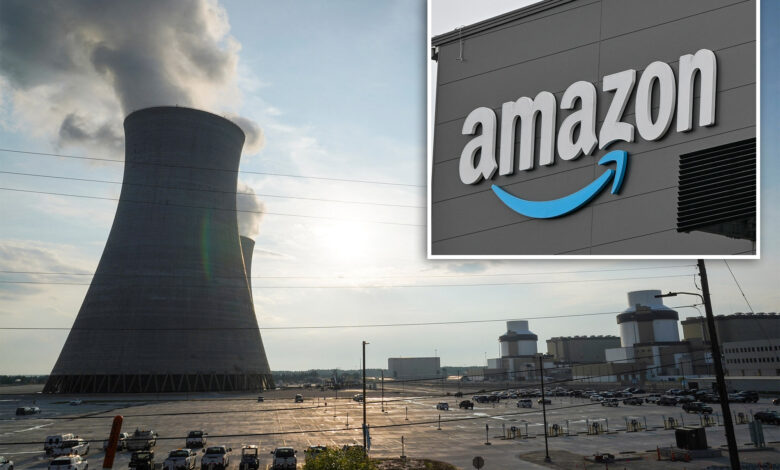Amazon to invest in 3 nuclear plants to power AI programs

Amazon is the latest tech giant to embrace nuclear energy as it scrambles to supply electricity-hogging artificial intelligence programs.
Amazon Web Services, the Seattle-based e-retailer’s cloud computing unit, said Wednesday it will invest more than half a billion dollars in three projects — one in Washington state, one in Virginia and another in Pennsylvania.
The Virginia and Washington state deals obligate AWS to put up the money for power utilities to study the feasibility of adding small modular reactors to existing energy stations.
In exchange, Amazon will have the right to purchase power from an initial installation of four small modular reactors.
Energy Northwest, a consortium of state public utilities, will have the option to add up to eight 80 MW modules, resulting in a total capacity up to 960 MWs, or enough to power the equivalent of more than 770,000 US homes.
The additional power would be available to Amazon and utilities to power homes and businesses.
AWS reacheding agreement with Virginia’s utility company to build a small modular nuclear reactor near an existing power station in Louisa County.
A small modular reactor (SMR) is smaller in size and capacity compared to traditional nuclear reactors.
“Modular” means they can be produced in factories and transported to sites for assembly, allowing for more flexible deployment and potentially reduced construction time and costs.
“Our agreements will encourage the construction of new nuclear technologies that will generate energy for decades to come,” said Matt Garman, CEO of Amazon Web Services.
SMRs will have their components built in a factory to reduce construction costs. Today’s larger reactors are built onsite. Critics of SMRs say they will be too expensive to achieve the desired economies of scale.
Nuclear power, which generates electricity virtually free of greenhouse gas emissions and provides high-paying union jobs, gets wide support from both Democrats and Republicans.
But no US SMRs exist yet. NuScale, the only US company with an SMR design license from the US Nuclear Regulatory Commission, last year had to axe the first SMR project to build its technology at a US lab in Idaho.
In addition, SMRs will produce long-lasting radioactive nuclear waste for which the US does not yet have a final repository.
Scott Burnell, a spokesperson at the US NRC, said “no specifics” about the planned SMRs been presented yet to the regulator.
Google said on Monday it signed the world’s first corporate agreement to buy power from multiple small modular reactors to meet electricity demand for artificial intelligence.
The technology company’s agreement with Kairos Power aims to bring Kairos’ first small modular reactor online by 2030, followed by additional deployments through 2035.
The companies did not reveal financial details of the agreement or where in the US the plants would be built.
Google said it has agreed to buy a total of 500 megawatts of power from six to seven reactors, which is smaller than the output of today’s nuclear reactors.
Last month, Microsoft and Constellation Energy signed a power deal to help resurrect a unit of the Three Mile Island plant in Pennsylvania, the site of the worst US nuclear accident in 1979.
US data center power use is expected to roughly triple between 2023 and 2030 and will require about 47 gigawatts of new generation capacity, according to Goldman Sachs estimates, which assumed natural gas, wind and solar power would fill the gap.
With Post Wires




